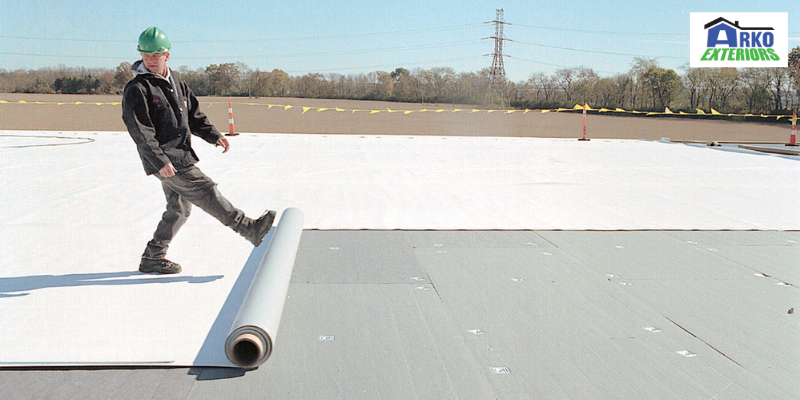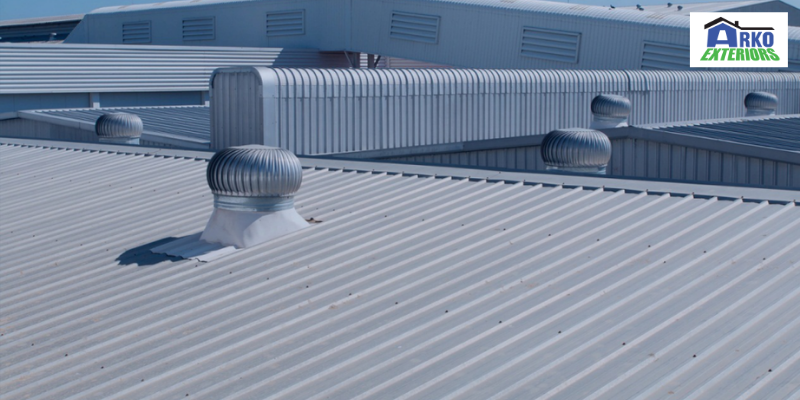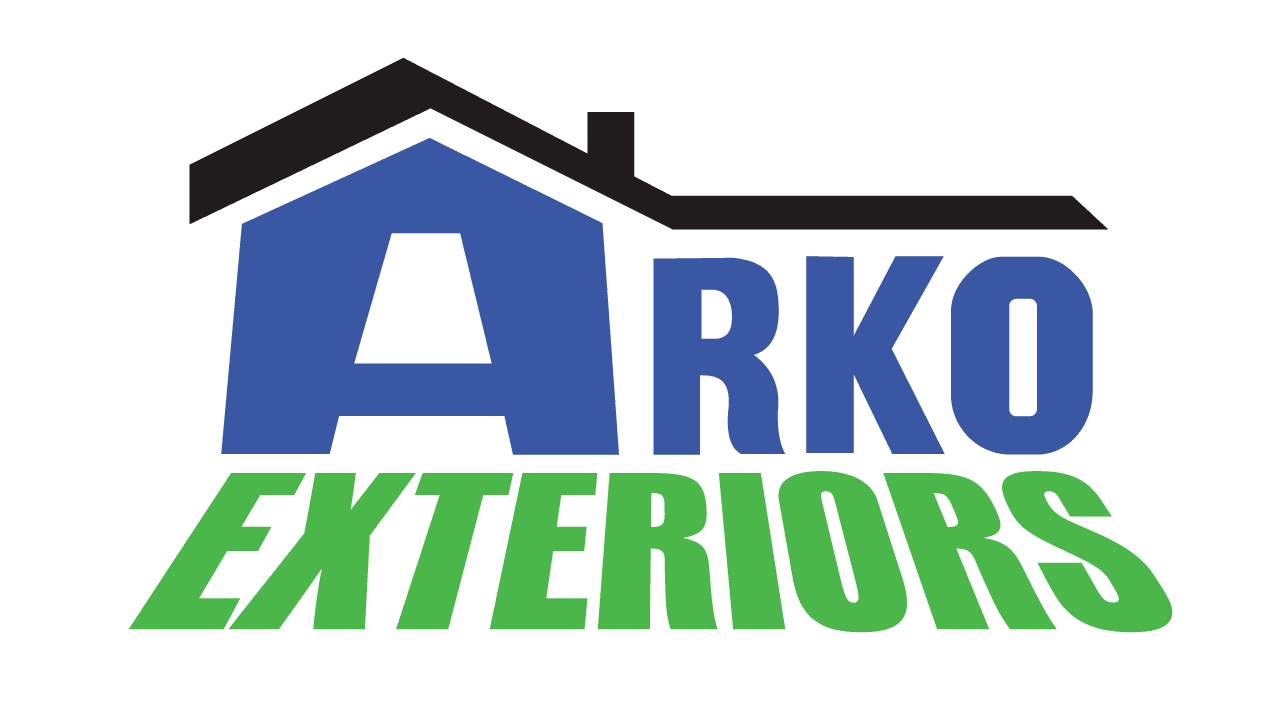For an industrial or commercial building, roofs are the first line of defense. The commercial roofs have a sturdy design to withstand different climatic conditions. An industrial roofing system provides protection to the building from rain, wind, snow, hailstones, and heat. The industrial roofs are 24/7 exposed to varied weather conditions. Due to the constant exposure, the roofs experience severe damage. Sometimes, the weather elements cause damage to the roof and deteriorate its functional efficiency. If you want the industrial roofs to stay durable and highly efficient, focus on getting the best industrial roofs.
Here are common types of industrial roofing systems. Get detailed information about each one of them.
# 1. Thermoplastic Polyolefin – TPO Industrial Roofing System:

Thermoplastic polyolefin is commonly known as TPO. This type of industrial roofing includes single-ply layering or membrane. The roof layers comprise a perfect blend of fiberglass, ethylene, rubber, and propylene. TPO offers a wide range of advantages. Therefore, it is the best choice for industrial buildings. Some of the advantages are as given below:
- Offers Durability
- Resistance from fire
- Resistance from wind
- Resistance from UV
- Protection from chemical exposure
- Prevents puncture of the roof surface
- The average lifespan is more than 20 years
TPO roofs have a white appearance. Therefore, it reflects maximum heat falling on the roof. It helps in maintaining coolness in the interior of the building. TPO will offer resistance to oil exposure and fats. This means that you can use it to cover restaurants and cafes. TPO roofs are useful for all industrial buildings that emit oils.
#2 Industrial Roofing System: Metal Roofs

The metal roof is the first thing that comes to your mind when you think of an industrial roofing system. Metal roofs are best for industrial buildings because they are durable and provide against climatic changes. You may worry about rusting and denting on the metal roofs. But the manufacturers ensure that metal roofs have high resistance to rust and denting. The average life expectancy of metal roofs is more than 40 years. Here are some of the features you get with metal roofing.
- You will get High fire resistance
- Versatility
- Metal roofs offer durability
- Roofs offer wind resistance
- Metal roofs can easily hold up to excessive snow.
You can get metal roofs in different styles, shapes, patterns, and colors. Choose the best one for your industrial building. Some of the common metal roofing is available as tin, stainless steel, copper, aluminum, galvanized steel, and tin. Each type of material will offer different features and resistance.
#3 Built-Up Roofing For Industrial Buildings:
Built-Up roofing is popularly known as the BUR method of industrial roofing. When you notice any industrial building with a gravel appearance – it’s BUR. This type of industrial roofing comprises multiple layers. The layers are of asphalt/tar. The topmost layer will be gravel. The BUR roofing will offer little slope to the roof. Here are some advantages you get from the BUR roofing system.
- Waterproof sealing on the roof
- Protection from UV rays
- It requires low or no maintenance
- It offers high durability
- Affordable industrial roofing option.
#4 Modified Bitumen – Industrial Roofing:
You can refer to modified bitumen as built-up roofs. They are similar to the BUR roofs. The slope is minimum but offers high-level protection from harsh climatic conditions. In modified bitumen, the layers are of bitumen align with other sustainable materials. The most common material is fiberglass which is applicable in the bitumen layers. Check out some advantages of the modified bitumen roofing system.
- It offers resistance to changing climatic conditions.
- Durability
- It does not crack in extremely cold or hot weather.
- Low maintenance
What Should You Consider While Choosing Industrial Roofing System For The Building?
- You need an industrial roofing system but you should consider crucial factors before choosing the right one.
- Be sure about the local climatic conditions.
- The roof should be energy-efficient.
- It should have an average service life of more than 30 years.
In the market, you can avail different types of industrial roofs. Selecting the right one is the key to all your issues. If you choose the wrong roofing system, you may need roof replacement within a short span of time.
Summary:
Now you know about the varied industrial roofing available in the market. Before you choose industrial roofing for your commercial building, know your requirement. Along with that, know about the local climatic condition of the area. When you have clarity of your requirements, it will be easy for you to make the choice. Are you still stucked with what to go for? If yes, then contact Arko Exterior in Minnesota for more reference.
